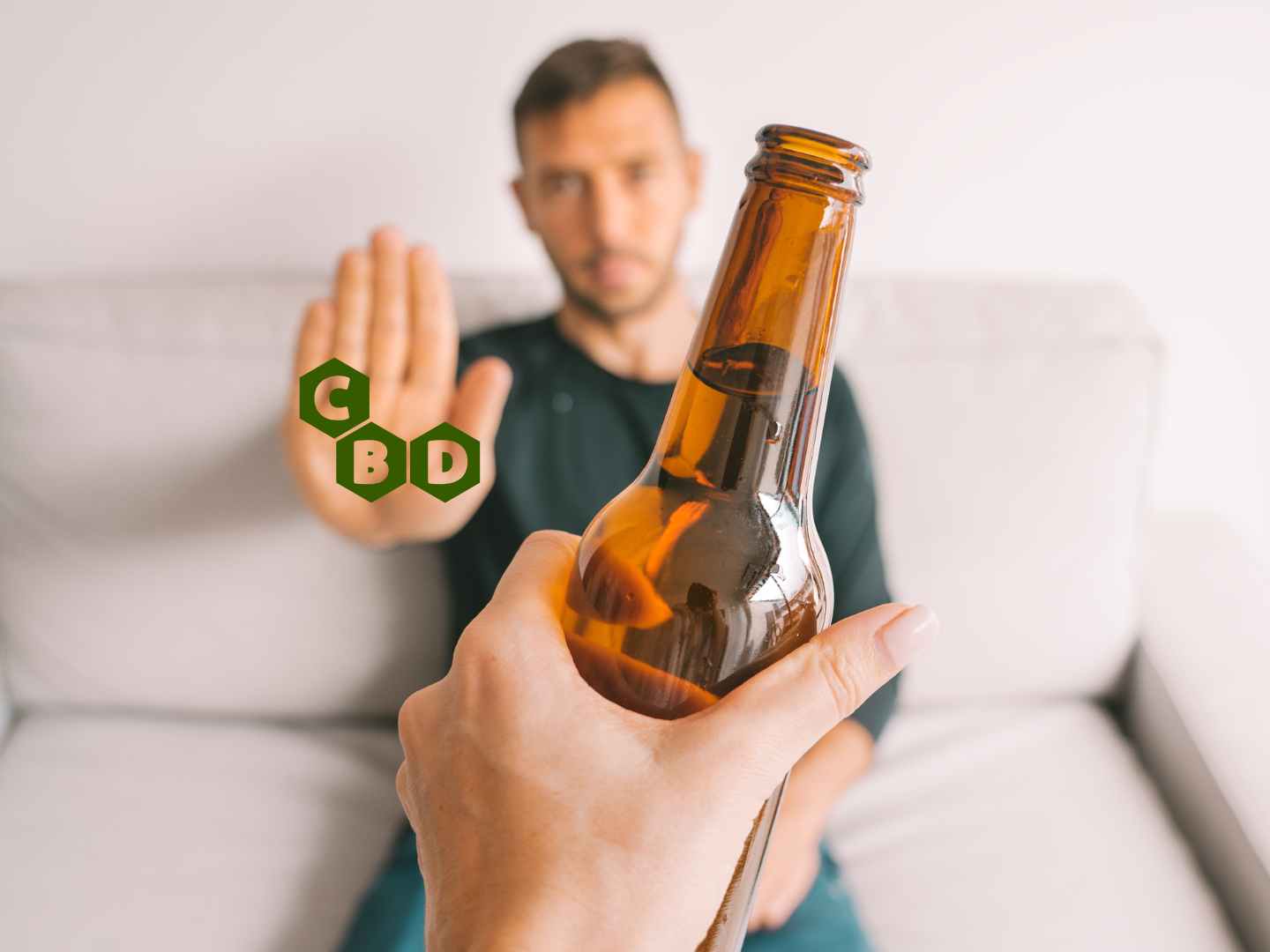CBD and Alcohol Use Disorder: Can Cannabis Compound Break the Cycle?

A New Hope in an Old Battle
Alcohol use disorder has been one of humanity’s most stubborn public health crises. Billions are poured into treatment programs, medications, and relapse prevention every year, yet the success rates remain bleak. Now a federally funded study is shining a light on cannabidiol (CBD) as a potential disruptor in this field. Researchers at UC San Diego found that CBD may not only reduce alcohol cravings and withdrawal symptoms but could also protect the brain from alcohol-related damage. While it’s not yet a clinical cure, the evidence puts CBD on the map as a candidate worth serious attention in the fight against alcohol dependence.
The Study That Changed the Conversation
In the UC San Diego experiment, researchers worked with rats made dependent on alcohol. They administered synthetic CBD intravenously in doses that, while high by human standards, were designed to test the compound’s therapeutic potential. The outcomes were nothing short of remarkable. Rats given CBD drank less alcohol, showed fewer withdrawal symptoms, and were less likely to relapse when re-exposed to alcohol cues. On a neurological level, CBD restored normal activity in the basolateral amygdala, the brain region tied to anxiety, dependence, and relapse. It also prevented neurodegeneration in striatal circuits, the brain’s reward and habit hubs. Just as important, these effects weren’t the result of sedation. The animals retained motor function, but their anxiety dropped significantly. That distinction matters—CBD wasn’t masking the problem, it was altering the underlying brain activity.
Connecting the Dots with Broader Research
This study is not an outlier. A growing body of research points to CBD’s role in reducing alcohol-related harms. At the University of Sydney, scientists found that CBD reduced binge drinking in mice, lowering both ethanol intake and blood alcohol levels without sedation. Human trials, though small, have echoed these effects. One study showed that an 800 mg oral dose of CBD reduced cue-induced cravings while dampening activity in the nucleus accumbens, the brain’s addiction control center. And a 2024 systematic review concluded that CBD modulates networks responsible for reward, emotional regulation, and impulse control. Whether in rodents or humans, the story is consistent: CBD reduces alcohol’s pull on the brain and the body.
Why CBD Could Change the Game
Alcohol kills more people every year than opioids, yet research dollars and media coverage often overlook it. Traditional treatments like benzodiazepines or naltrexone can help, but they come with heavy baggage—sedation, side effects, low adherence, or limited success. CBD represents a different profile altogether. It’s non-intoxicating, generally well tolerated, anxiolytic, and neuroprotective. If larger clinical trials confirm its benefits, CBD could become not just an alternative but a preferred option in managing alcohol use disorder. Still, caution is warranted. The high doses used in preclinical studies may not be practical outside of controlled settings. Patients trying off-the-shelf CBD products might not experience the same results, highlighting the need for pharmaceutical-grade, standardized formulations.
Cannabis as Harm Reduction
This line of research connects to a broader trend: cannabis as a harm-reduction strategy for alcohol. Multiple population studies have shown that when cannabis use rises, alcohol consumption often falls. For some, cannabis becomes a complete substitute; for others, it simply reduces the amount they drink. That substitution effect has enormous implications. If CBD or cannabis more broadly can lower relapse rates and help people stick with recovery, it could transform outcomes for millions living with alcohol dependence.
What Comes Next
The path forward is clear. First, large-scale human trials must test CBD’s efficacy in managing withdrawal, relapse, and brain health. Second, researchers need to establish dosing strategies that work for humans without requiring impractically high levels. And third, policymakers must ensure that if CBD proves effective, patients can access regulated, high-quality products instead of gambling with unregulated supplements. The science is pointing in a promising direction, but policy and infrastructure must catch up.
Final Thought
The opioid crisis has rightly drawn global attention, but alcohol continues to claim far more lives each year, often quietly and without the same urgency. The possibility that CBD can reduce relapse risk and protect the brain is not just another piece of interesting cannabinoid science—it could represent a paradigm shift in how we approach alcohol recovery. We’re not at the finish line yet, but the trajectory is undeniable. Cannabis is expanding its reach beyond pain, sleep, and anxiety, and CBD may prove to be one of the most powerful allies we’ve ever had in breaking the cycle of alcohol dependence.
Please note: You are not currently logged in. Only members can contribute comments. If you would like to contribute click the button below.
